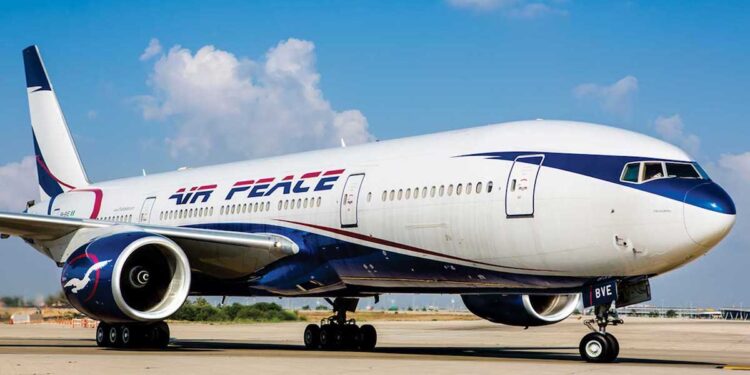The Chairman of Air Peace, Mr. Allen Onyema, has voiced his concerns over the delay in accessing $14 million held by the Central Bank of Nigeria (CBN), which has been lodged with the bank for six months. The $14 million was paid in naira and was intended for the maintenance of several Air Peace aircraft that were sent overseas for various levels of maintenance.
In an interview with aviation journalists in Lagos, Onyema explained that the delay in accessing the funds was adversely affecting the airline’s operations. He also pointed out the difficulties faced by indigenous airlines in obtaining foreign exchange from the country.
Onyema further disclosed that the airline had borrowed the sum at a 26% interest rate from banks to cover the maintenance costs. The CBN is expected to pay the airline approximately $24 million, which includes the $14 million lodged with the bank.
The Air Peace Chairman emphasized the importance of creating a conducive environment and government support for Nigerian airlines to thrive. He believes that with the necessary financial support and improved conditions, Nigerian carriers have the potential for significant growth and success.
Onyema also highlighted other factors limiting the growth of indigenous airlines, including the lack of transit facilities for passengers at international airports such as the Murtala Muhammed International Airport in Lagos and the Nnamdi Azikiwe International Airport in Abuja. He noted that the absence of transit facilities and certain immigration and customs policies hinder the operations of airlines on regional and international routes.
Air Peace operates flights to destinations in West and Central Africa and aims to bring passengers from these regions to its hub in Lagos for connecting flights to other international destinations. However, the absence of transit facilities and specific policies impact the airline’s ability to facilitate seamless connections for passengers.
The Chairman stressed the importance of upgrading Nigerian airports to include transit facilities and adopting new immigration policies that recognize transit passengers. He believes that these measures are vital for Nigerian airlines to compete effectively and benefit from the Single African Air Transport Market (SAATM).
Additionally, Onyema mentioned that Air Peace has secured the necessary permits, including a Foreign Carrier Operator Permit (FCOP) and a Third Country Operator Permit (TCO-UK), allowing the airline to operate flights to Europe and the United Kingdom. These permits required rigorous audits to confirm the airline’s compliance with safety standards and operational conditions.
With these permits in place, Air Peace is poised to provide direct flights between Nigeria and the United Kingdom in the near future, offering more travel options for passengers.
The challenges faced by Air Peace and other Nigerian airlines highlight the need for government support and infrastructure improvements in the aviation sector to enhance the country’s competitiveness in the global air travel industry.










